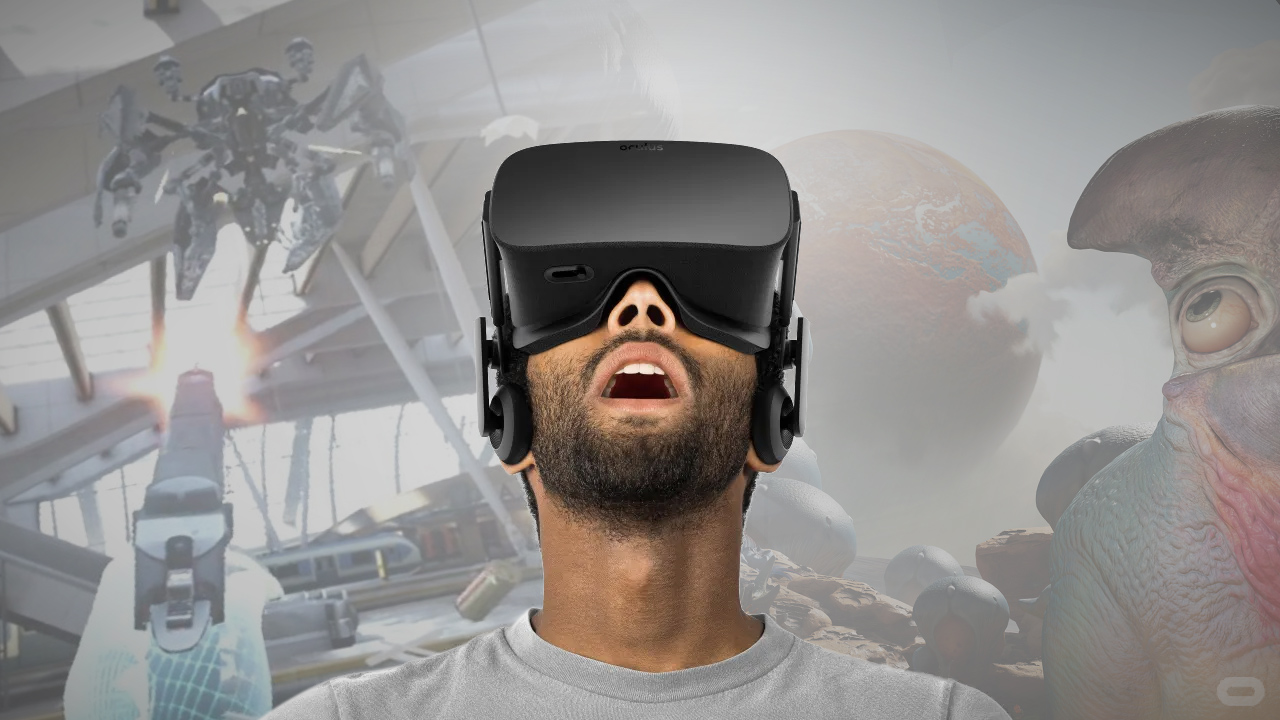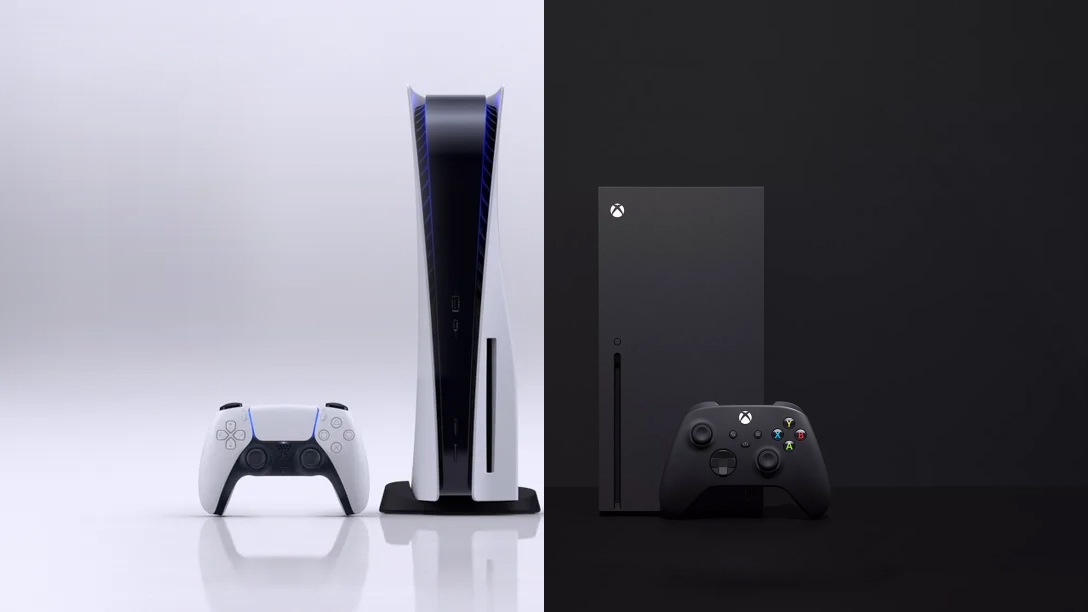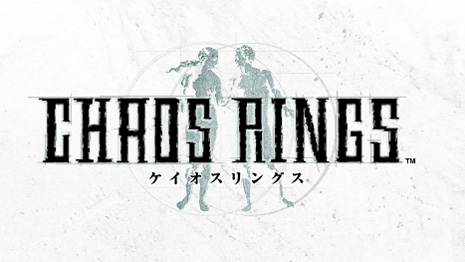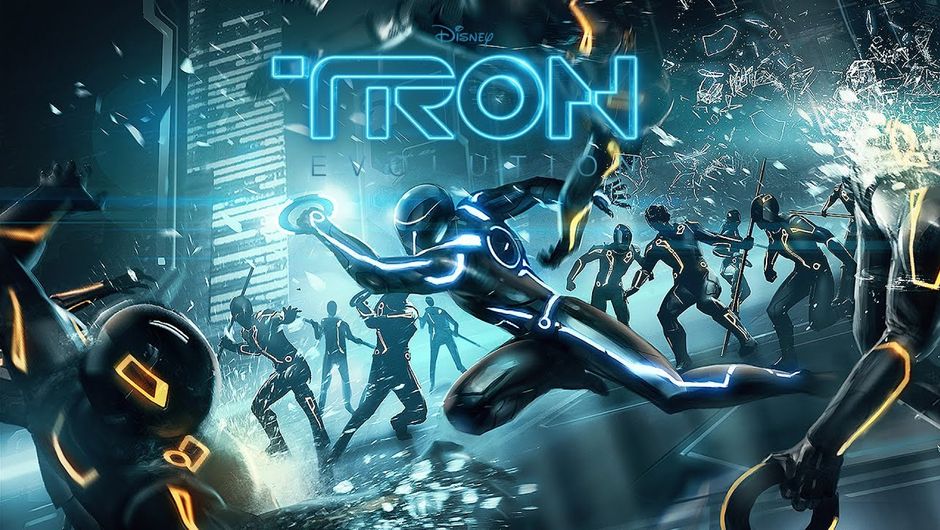Merely a few months ago, no one would have predicted Windows 11's existence. Windows 10 was purported to be the "last" Windows, after all—an ongoing service that would, if anything, drop the number entirely once other versions fell out of support. But alas, it wasn't to be, and now Windows 11 has arguably ripped open several old Windows wounds that many had thought to be nearly healed.
Not everything about Windows 11 is bad, mind you. Certain elements of the new interface are genuinely a pleasant refresh from the more spartan look of Windows 10. It's just that they're so unevenly applied and decorating an old and crumbling foundation that makes the effort feel hollow and incomplete at best.
This reality has resulted in a strange phenomenon: Windows 11 created the desire for a new OS when many were content with Windows 10. But by simultaneously highlighting its weaknesses, many users are running for the hills instead.
Searching for Greatness
Linux fanatics, as they are wont to do, have wasted no time capitalizing on the chance to preach their favorite distros. And I have to admit, for the first time in over a decade, even I was briefly tempted to convert. However, a quick stint with a Linux virtual machine reminded me just how little desktop Linux has evolved since I last daily drove it roughly 10 years ago. Controversial desktop environments like GNOME Shell and Unity killed innovation as a result of splitting their developer communities; and while KDE and newer, Chinese-based environments like Deepin and Cutefish are much easier on the eyes at first glance, they too suffer from Windows syndrome, hiding ancient software conventions just beneath the surface. Linux is the undisputed king of servers, but on the desktop, it's merely a different set of problems.
Then there's Mac OS, which is... well, Mac OS. While Apple's recent innovations with their M1 hardware are compelling even to a PC guy like me, the locked-down software still presents too many hurdles to my workflow (and gaming habits) for switching to even be a consideration. So, enough said about that.
When it comes down to it, operating systems are built for function over form. Everything out there has at least some skeletons from decades of development hiding in its closet. And for decades, we've just accepted that's the way it is. But in 2021, there's a growing feeling that it shouldn't be.
What the world needs is a complete rethink of the way an OS works, the way apps are presented, and how the desktop can tie it all together.
What I didn't expect is to find it on the phone in my pocket.
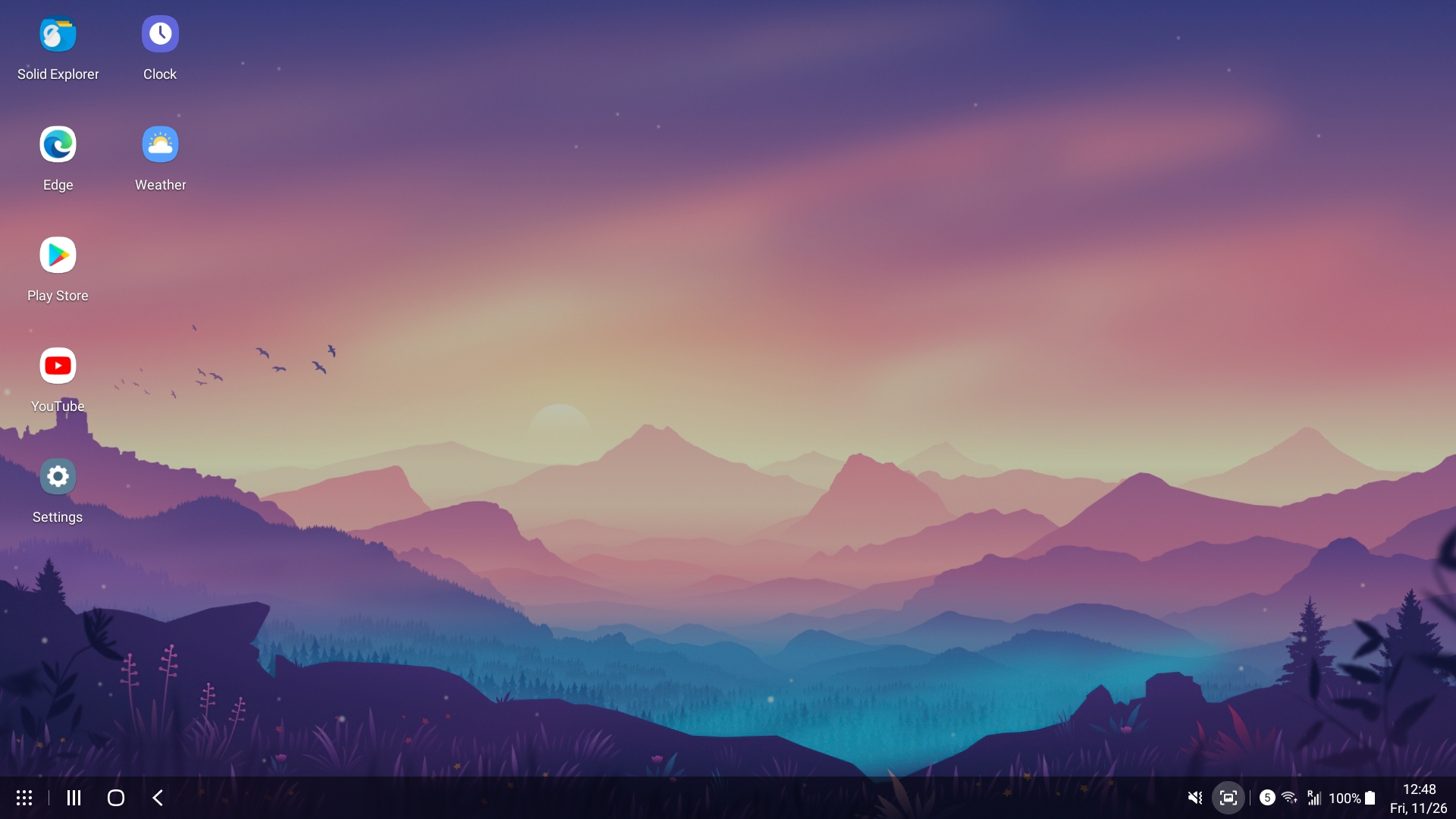
Finding Dex
Samsung Dex is an alternative window-based desktop environment made exclusively for Galaxy smartphones and tablets since the Galaxy S8. But although it's been around for half a decade, I never paid much attention to it until two weeks ago when I hooked up my Galaxy S10e for some Final Fantasy VII: The First Soldier on the big screen. And what I found rocked my digital world.
Getting into Dex could hardly be simpler: just plug in to any external display of your choice, and instead of the default Android launcher, you'll be greeted by a full-fledged desktop experience. And I really do mean any display. Ideally, you'll want to use a monitor with USB-C for all-in-one power, video, and touch support. But otherwise, an HDMI or DisplayPort adapter will do just fine. You can even connect wirelessly to MiraCast-compatible clients. In lieu of a touchscreen, a traditional keyboard and mouse work almost exactly as you'd expect, or you can use your phone as a virtual touchpad with multi-touch gestures instead--no extra hardware required. There's even a dedicated Windows/Mac application for operating Dex on a PC over a traditional USB cable.
But of course, the real appeal of Dex is its ability to replace a desktop PC with a mobile device. The concept itself is nothing new (PocketPC did it first 20 years ago) but the execution has always left something to be desired. Dex, on the other hand, actually feels better than traditional desktop OSes in my time with it. All the modern conventions of smartphone navigation are still there, but reorganized into a format that feels familiar to any Windows veteran. Apps open in resizable windows which can snap to different portions of the screen. The Windows key on a physical keyboard opens the app drawer, and typing performs an instant search. Alt-tab gives the expected overview of open applications on the current desktop, while Win-tab shows all running apps across both Dex and your phone itself. Most major elements support right-click operations. There's also a surprising amount of lower-level settings you'd expect on a desktop, but not necessarily a phone: things like disabling mouse acceleration (thank goodness), choosing from multiple connected audio devices, and whether or not to auto-hide the taskbar.
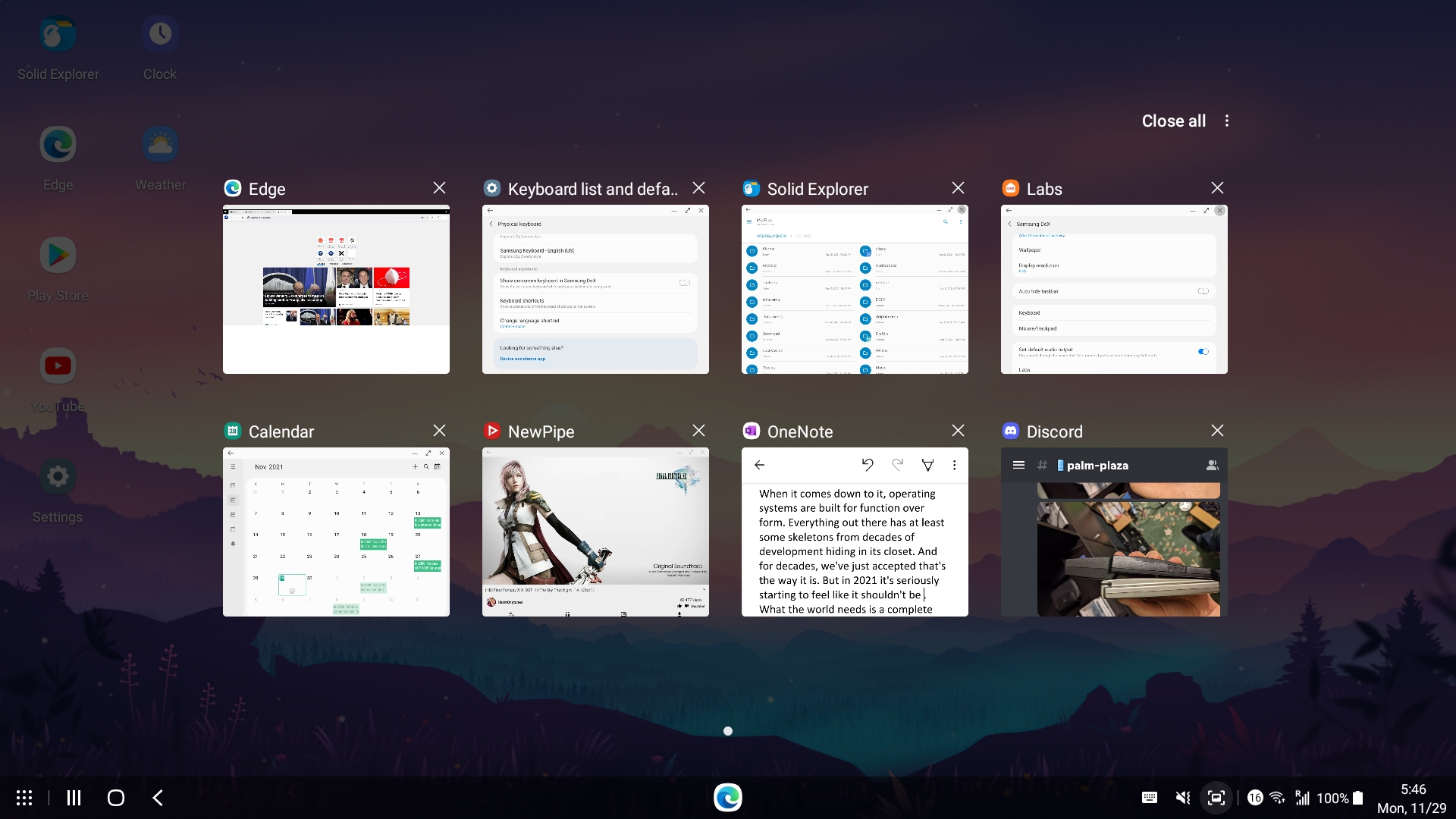
None of this should be remarkable for a desktop, but what makes Dex special is that it pulls it off with such polish and ease, going back to anything else feels like a step down. It's the little things--the way the mouse fades out when idle, the way apps transition when resizing, the way fullscreen mode conforms to the display rather than taking it over--that imply a clean, lightweight, yet rock-solid foundation you can simply feel with every interaction. It's impossible to use Dex and not wonder, why can't Microsoft do it this way?
An Answer, but not a Solution
Of course, the answer lies in the fact that Dex is not an OS in itself. That would be Android. I'm well aware that part of the reason Dex works so well is because it doesn't have to do all the heavy lifting of a full-fledged desktop OS in the first place. You'll never run Windows apps here, even with clever compatibility layers like WINE or Steam Proton*, and that means you'll rarely encounter scenarios that highlight Dex's weaknesses. You won't be dragging and dropping files across apps via the taskbar, for example--an oft-cited criticism of Windows 11 as well.
( Technically, you can run many desktop apps through Linux distro containers like UserLAnd, and it may even be possible to hack together a working Box86/64 environment capable of running WINE. But this stack is far too fragile and incomplete a solution for any serious productivity, and likely always will be without any kind of official support.)*
So, don't get me wrong: I'm not suggesting you should abandon your current operating system of choice and switch to Dex (unless your computing needs really are that simple). But it's surprising how much can be done on Dex alone, and I am suggesting that operating system developers should seriously take note. Dex provides a real-world blueprint for what a modern OS should look and feel like, both to the end user and under the hood (I even wrote this article on it!). I see no reason why Samsung's designs couldn't work when scaled up to a more robust environment, but sadly, it may be decades longer before we get there. Not even Chrome OS, which is similar to Dex in theory, can match the aesthetic joy of Samsung's unlikely work of desktop art--a sort of Marie Kondo reduction of typical operating system clutter down to only the parts that matter.
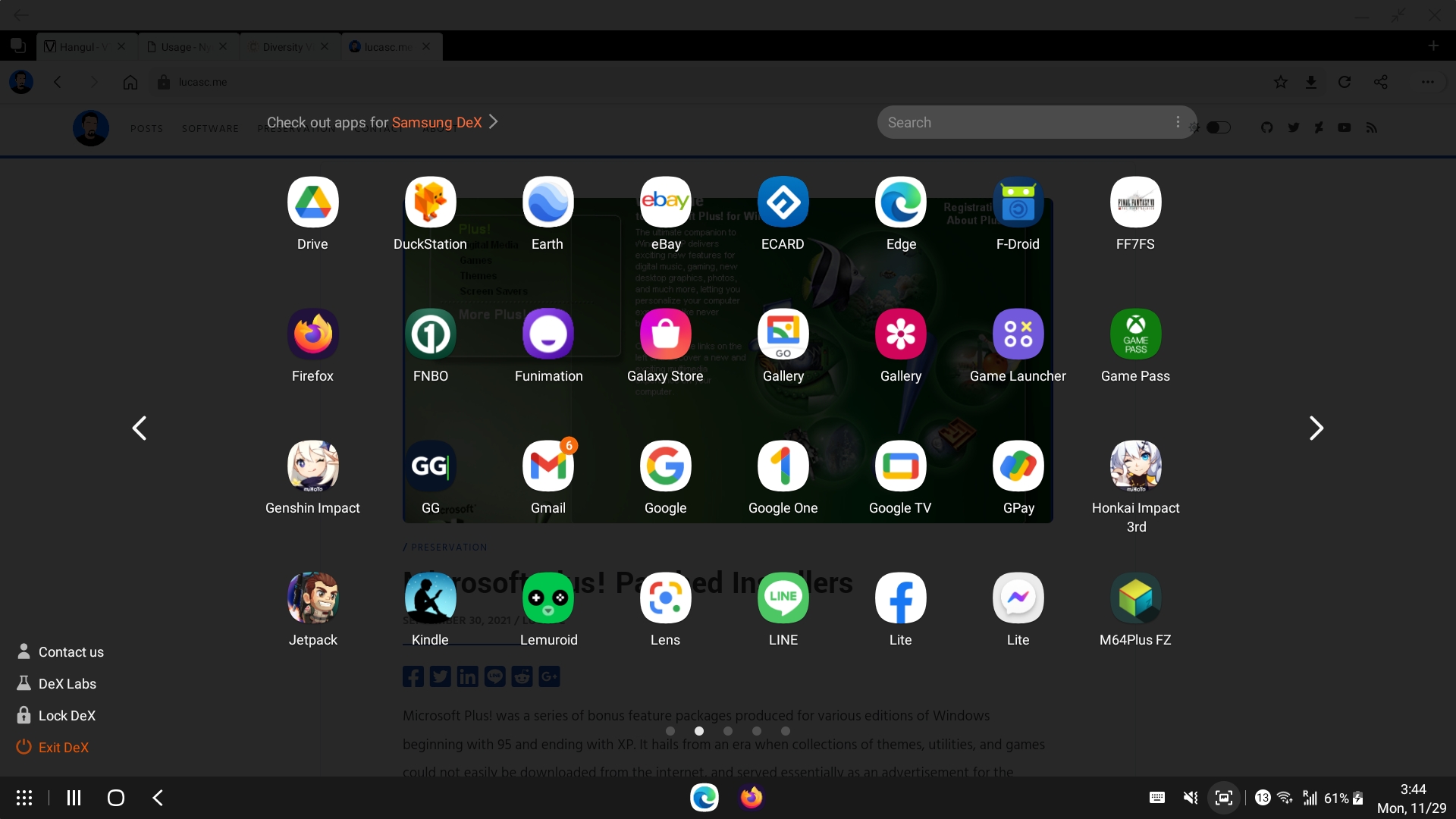
In theory, the key is simple: virtualization. Android itself is likely not the desktop OS of the future, but its application model offers much to learn from. Dex works because Android applications are virtualized. They can be displayed and resized in windows not because they were designed to, but because they were designed to operate within their own space and let the OS decide how that space should be presented. The desktop and the applications living on it are fundamentally separate and can be developed and improved upon independently. And yet, there's nothing in the model itself needlessly splitting up the filesystem into an inaccessible collection of walled gardens... such as we've seen in certain other attempts at virtualized applications.
Yes, Android is not alone: Microsoft has tried to jump on the virtualization bandwagon before with its UWP runtime, and the upcoming Windows Subsystem for Android is bringing Android apps to Windows 11 as near first-class citizens. But these are only additions to Windows, not proper replacements, and offer no path to backwards compatibility. Windows RT, Windows 10 S, Surface Pro X--every Windows product to release without support for traditional Win32 apps has failed. Backwards compatibility is a must, and in some sense that's a shame. If I could bring my entire workflow and game library to Dex, I'd have done it yesterday. Instead, I must wait for Windows itself to be reimagined around a virtualization model for Dex's vision of the future to become truly realized. Like it or not, Windows is the only platform where all of my apps and games can live in one single place. To solve the interface problem, the app model problem has to be solved first.
Until then, I'll consider myself fortunate to have gotten a taste of the future here and now. I now know exactly what I'm looking for in a modern desktop, and while it's disappointing to realize that neither Windows, Linux, nor Mac OS fulfills that dream, at least I'll know it when I see it come true.

